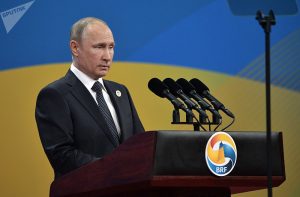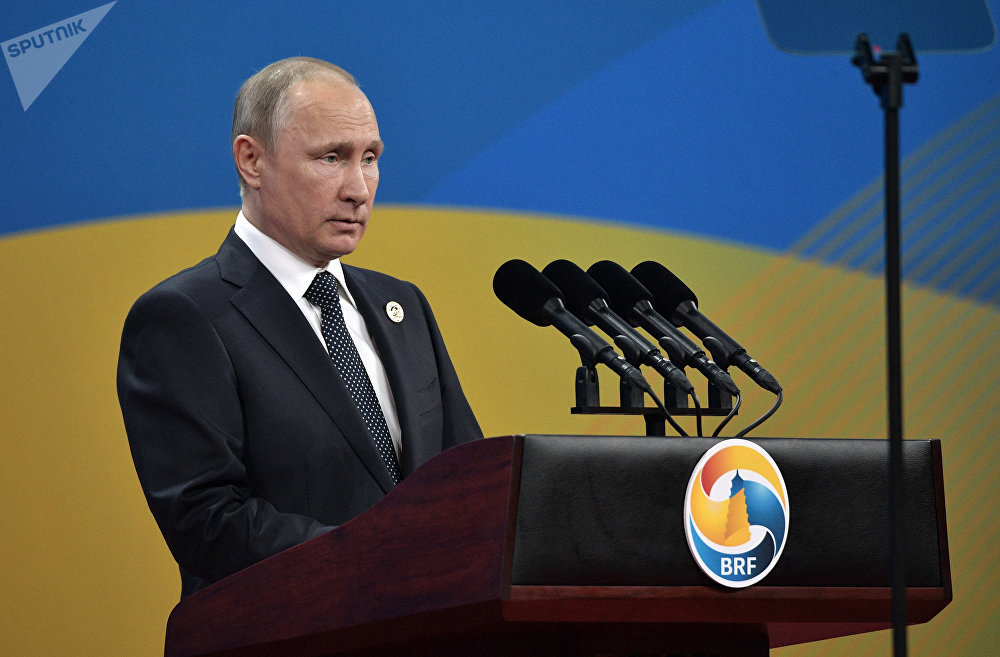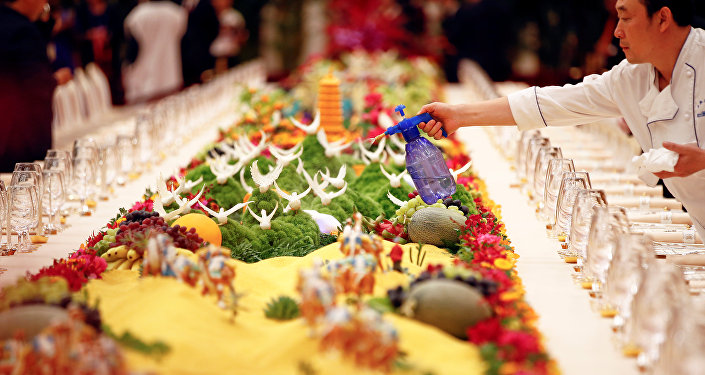Russia is uniquely positioned to benefit from and contribute to the signature initiative of Chinese President Xi Jinping, known as One Belt, One Road, political analyst Irina Alksnis wrote for Vzglyad, commenting on the international forum on the Silk Road Economic Belt and the 21st-century Maritime Silk Road development strategy.
“The new Silk Road project could not be carried out without Russia’s participation,” she
There is an additional bonus, the analyst said. By taking part in implementing Beijing’s development strategy, Russia will receive extra weight in relations with China, a nation known for its tough negotiators.”It is increasingly likely that Russia would be able to provide invaluable services to China when it comes to this project. Beijing would later have to repay Moscow for these efforts. It is a good prospect to have Beijing as a debtor,” she explained.
Beijing is hosting the two-day One Belt, One Road summit on May 14-15, with the heads of 29 states and governments, including Russian President Vladimir Putin, taking part in the event.
The event is linked to Beijing’s most ambitious foreign policy initiative aimed at building an economic “silk road” linking Asia and Europe. The $40 billion development strategy, which was unveiled in 2013, is meant to promote economic integration, particularly in Eurasia, and consists of two main components, the land-based “Silk Road Economic Belt” and “Maritime Silk Road.”
While in Beijing, Putin reaffirmed that Russia will “actively participate” in implementing the initiative.
However, not everyone has embraced the One Belt, One Road project. India has long been wary of the venture that will see a closer relationship between China and Pakistan, a country embroiled in a territorial dispute with New Delhi. Indian representatives have not taken part in the forum.
In addition, on Sunday, the German Minister for Economics and Energy, Brigitte Zypries, warned that the European Union would not sign a joint statement at the One Belt, One Road forum if China does not provide additional guarantees on free trade and fair competition.
“One gets the impression that some participants of the forum decided to ‘put Beijing in its place.’ China will have to draw a rather painful lesson from this. One has to pay a high price for open claims to global leadership and constantly reaffirm its capabilities to achieve grand geopolitical goals when others try to hamstring these efforts,” Irina Alksnis said.





